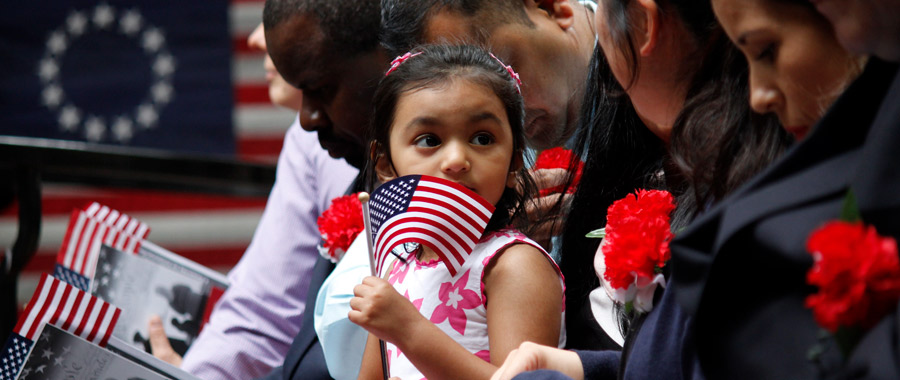In recent years, the dialogue surrounding race, identity, and the immigrant experience has gained unprecedented prominence. This is particularly true within the Bahá’í community, which espouses principles of unity, equality, and the elimination of prejudice. The exploration of race through the lens of personal experience, especially as an immigrant, embodies a potent confluence of history, cultural exchange, and spiritual reflection. Immigrants, by virtue of their diverse backgrounds, offer unique perspectives that contribute to the collective understanding of race in society.
The Bahá’í teachings assert that humanity is fundamentally one people, albeit often hindered by the superficial distinctions of race and ethnicity. At the heart of this belief lies the principle of the oneness of mankind, which posits that differences among people should be viewed not as divisive but rather as enriching. Consequently, the journey of educating oneself about race as an immigrant is steeped in both personal introspection and societal analysis.
For many immigrants, the initial experience in a new country can be fraught with challenges, primarily due to the unfamiliar social and racial dynamics that define the host culture. This confrontation with a different social fabric offers an opportunity for profound learning. The awareness of one’s racial identity may emerge in stark relief against the perceptions of others, prompting critical examination of surrounding racism and acceptance.
To embark on this educational journey, the first step involves a conscious effort to recognize and unpack one’s own racial and cultural biases. This introspection is imperative; it creates a robust foundation for understanding the systemic nature of racism that can dominate societal landscapes. Many Bahá’ís advocate for the practice of self-reflection, using it as a tool to assess inherent prejudices and cultural assumptions. It is essential to acknowledge that such biases can stem from upbringing, societal conditioning, or even intergenerational trauma.
Moreover, the experience of being an immigrant often renders individuals more attuned to issues of inequality. Observing firsthand how inequities manifest can be an enlightening experience. Such observations can lead to a deeper comprehension of the intersectional nature of race, class, and culture. Understanding that racial prejudices can vary widely across different contexts reinforces the need for a nuanced approach to discussions around race. Engaging with varying perspectives reinforces the belief in collective progress.
Building upon this foundation of awareness, the next phase involves active listening and learning from the narratives of others. Immigrants can enrich their understanding of race by engaging with those from varied backgrounds. Listening to their stories amplifies voices that have historically been marginalized or silenced. Such dialogues, facilitated by shared experiences or even disparate ones, foster a potent environment for growth and understanding. In this context, the Bahá’í teaching of unity not only encourages dialogue among individuals but also among communities.
Furthermore, an essential aspect of this journey includes confronting the uncomfortable realities of systemic racism. Engaging with literature, documentaries, and historical accounts that illuminate the effects of colonialism and systemic oppression can deepen one’s comprehension of race relations in a broader context. As Bahá’ís, it is crucial to understand how these historical events continue to shape contemporary experiences. The commitment to justice and equity entails recognizing these truths and advocating for systemic change.
In addition to intellectual engagement, participation in community-building activities can further reinforce one’s educational journey regarding race. Bahá’í-inspired initiatives that celebrate cultural diversity while addressing issues of racism can foster a sense of belonging, while simultaneously challenging prejudices. Activities such as interfaith dialogues, community service projects, and cultural festivals encourage individuals to reflect on their own biases and engage with the realities of those around them.
Moreover, education about race should also incorporate an understanding of the role of privilege. Recognizing the privileges conferred by certain identities—be it race, gender, or socioeconomic status—can evoke a critical consciousness that prompts individuals to act in solidarity with marginalized communities. The Bahá’í teachings implore adherents to work against injustice, equipping them with the moral imperative to not only educate themselves but actively dismantle the structures of oppression.
The final stage of this educational odyssey culminates in action. The insights gained through self-reflection, active listening, and engagement with history should propel individuals toward advocacy and meaningful participation in dialogues about race. This advocacy should honor the teachings of the Bahá’í Faith, which call for the unity of humanity and the elimination of prejudice. Taking tangible steps, whether through community initiatives, policy advocacy, or grassroots movements, allows individuals, especially immigrants, to contribute to the pursuit of justice in their communities.
In conclusion, the journey of educating oneself about race as an immigrant embodies a dynamic interplay of self-awareness, collective engagement, and active advocacy. Drawing upon the profound teachings of the Bahá’í Faith, individuals are inspired to confront their biases, amplify marginalized voices, and engage in systemic change. As the world grapples with the complexities of race, the unique perspectives of immigrants contribute to a richer understanding of our shared humanity. Such a journey is not merely about self-education; it is about fostering a more equitable and just world for all.
